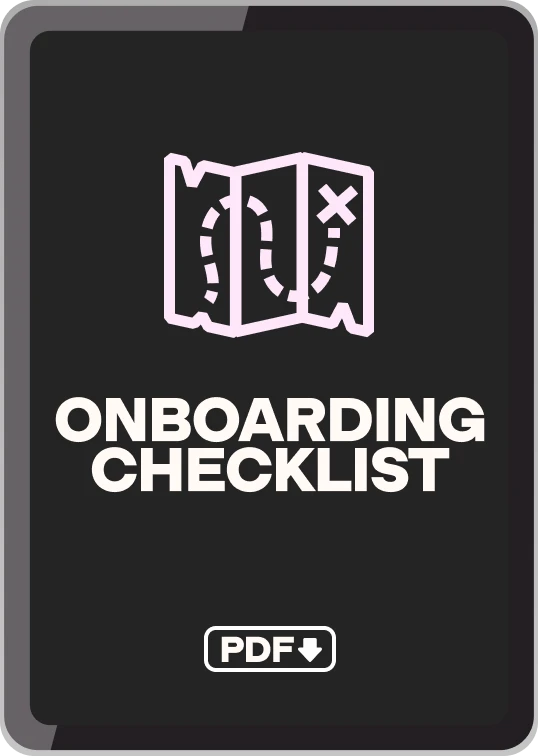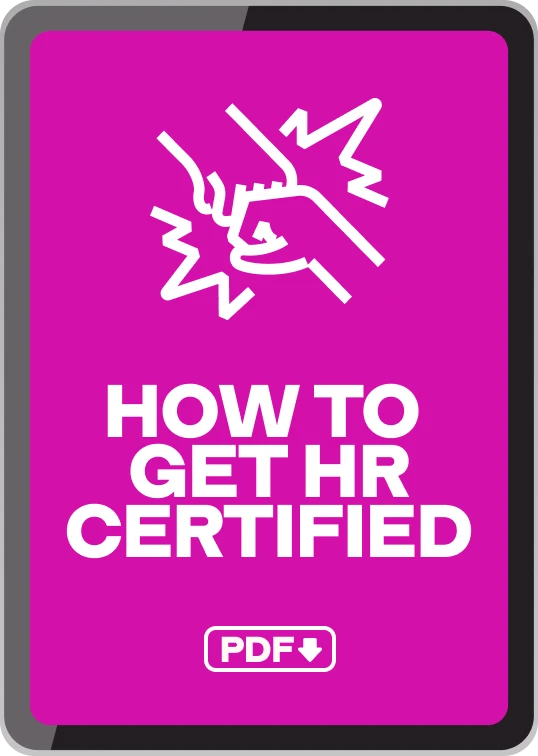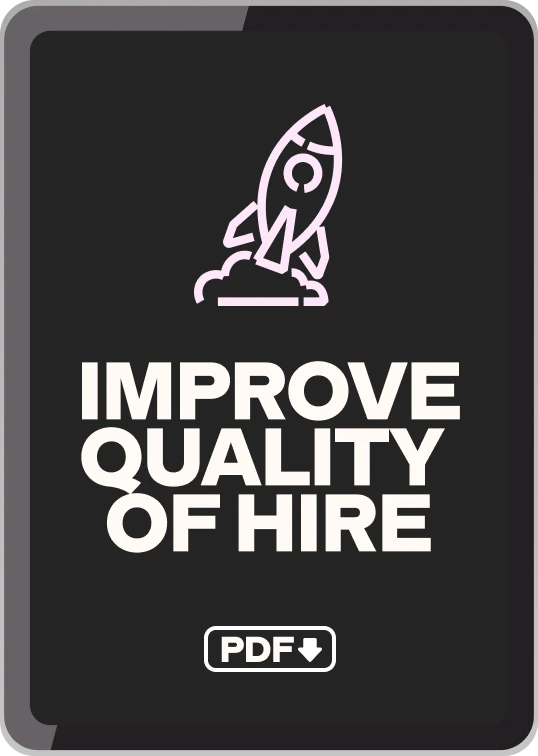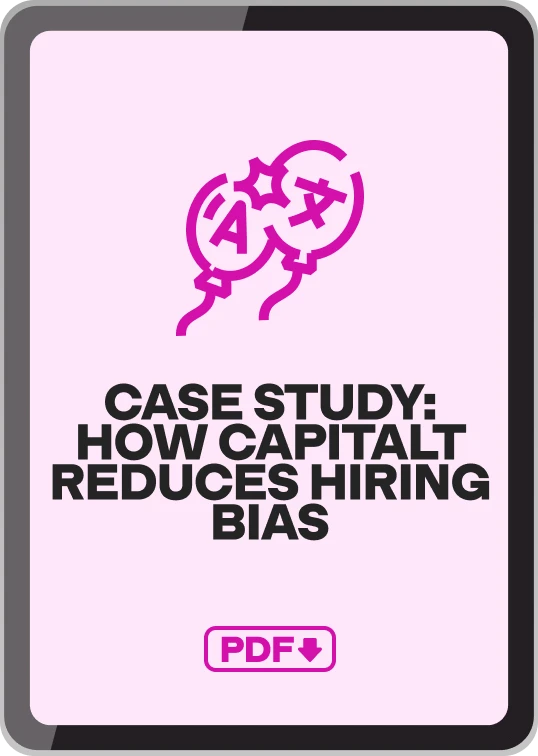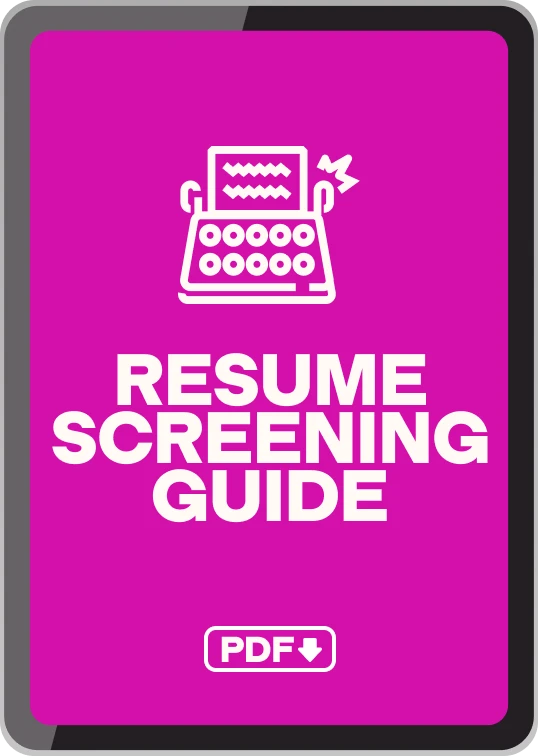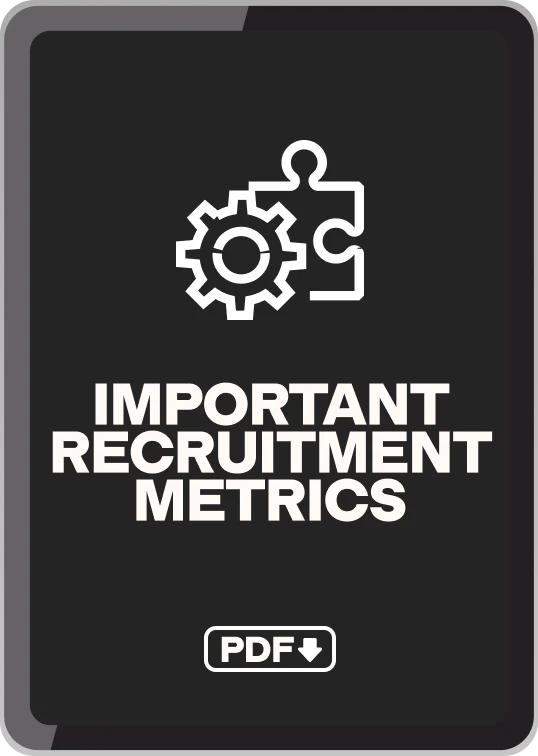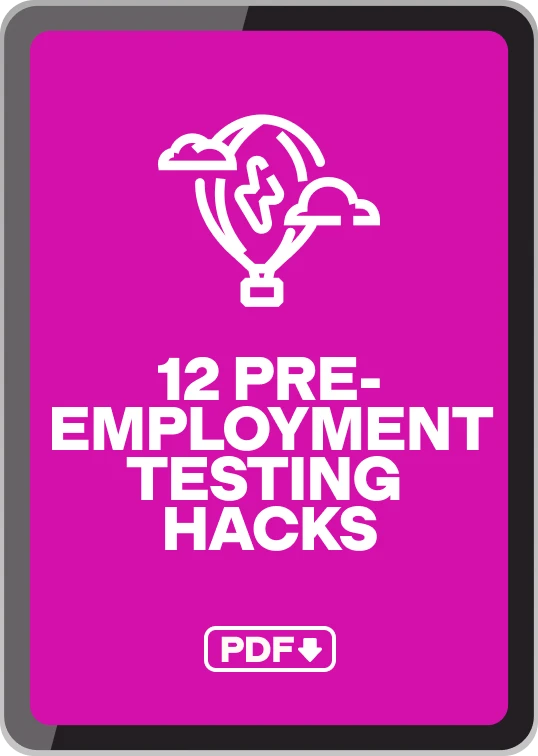20 top management interview questions
If you’re hiring a manager, evaluating your candidates’ skills is essential since they’ll play a vital role in controlling company resources, delegating tasks, and mentoring junior employees. To review their abilities in line with your position, you must ask the right behavioral, situational, and technical interview questions.
Specific management-oriented interview questions, coupled with a Leadership and people management skills test, can help you narrow your talent pool, shorten your time-to-hire metrics, and learn more about your candidates’ traits, skills, and experience. But you must be sure to compile the right set of questions ahead of time in order to effectively conduct a fair and structured interview process.
To help you get started, we have provided a comprehensive list of top management interview questions that you can use to assess your managerial candidates.
Table of contents
- 1. What are the qualities of a good leader?
- 2. What do you want to achieve in three years?
- 3. What are some of your management strengths?
- 4. Where can you improve as a manager?
- 5. What made you apply for this role?
- 6. Have you submitted applications for other job vacancies?
- 7. Why do you want a management role?
- 8. What are your salary expectations?
- 9. What are your interests outside of work?
- 10. What are some ideal qualities in a team member?
- 11. How do you manage difficult team members?
- 12. How do you delegate tasks to team members?
- 13. Are there any management styles or strategies you use to enhance your work?
- 14. How do you manage a stressful situation?
- 15. What are some challenges you have overcome in your career?
- 16. What did you like and dislike about your last job?
- 17. Are you used to organizing and leading meetings?
- 18. What was a typical day in your last management role like?
- 19. Do you have experience mentoring team members?
- 20. Why did you choose to pursue a career in management?
- When should you use these top management interview questions in the hiring process?
- Let TestGorilla help you fill your management role
1. What are the qualities of a good leader?
Your candidates will likely respond with qualities that apply to a management role and mention the relevant traits and skills they’ve used in a previous position. Answers can include:
skills.
These skills are essential for providing clear and concise instructions to team members. They also involve using active listening to process any concerns, such as ambiguous project goals.
Interpersonal skills.
These skills can help leaders liaise effectively with senior management and interdepartmental teams by reading and interpreting signals from colleagues to resolve any challenges or conflicts.
Time-management skills.
With effective time management, your candidates can satisfy their clients and enhance the company’s reputation by meeting deadlines while producing excellent quality work.
Empathy.
Your best candidates will handle their team’s concerns with empathy, which can lead to higher levels of job satisfaction. Empathy also helps to build trust and enhance professional relationships.
The perfect candidates will be able to give examples of times when these qualities have helped them with their duties, such as leading one-on-one meetings, meeting deadlines, offering feedback, or delegating tasks.
For example, a marketing leader who needs to provide feedback on a content writer’s articles will use communication skills to specify how they can improve. They might also use time-management skills to provide feedback before the deadline so the writer can make timely corrections.
2. What do you want to achieve in three years?
The candidates who apply may not be able to predict what they want to achieve in three years, but they might discuss their aspirations and the skills they’d like to learn. Mentioning abilities like communication, project management, and task delegation are important because they prove your candidates are motivated to enhance the company’s output.
Candidates who specify that they want to learn particular skills to help them achieve their career goals should already have methods in mind, which might require them to:
Complete courses
Work with a mentor
Read management books
Subscribe to management blogs
Asking your candidate this question will help you plan for their training and onboarding. For instance, if your candidate wants to attend training and specifies that they need to develop their presentation skills, you can offer them relevant opportunities.
3. What are some of your management strengths?
In response to this question, candidates should describe the strengths they feel benefit them as a manager and those they manage. From empathy and patience to reliability and conscientiousness, there are several potential answers.
Empathy is vital because it helps managers understand their team and build trust with their colleagues. It fosters trust and support in the workplace and is a strength you should look for – especially if it’s in your job description.
Reliability and conscientiousness ensure your candidates use consistent measures when delegating tasks, offering feedback, or mediating between senior management and their team. Candidates might mention they are conscientious when following up with project management issues to facilitate workflow processes.
Ask follow-up questions to learn how candidates have previously used these strengths in their roles or have them take our DISC personality test to evaluate their traits.
4. Where can you improve as a manager?
Answers to this question can include skills such as managing a team, liaising with stakeholders, offering constructive feedback, or coaching junior team members to help them advance in their careers.
To achieve these and other goals, some candidates might aim to:
Improve active listening skills.
They might practice echoing to confirm their team members’ requests during meetings and be sure their team feels supported and heard.
Enhance
abilities.
They could practice meeting deadlines more efficiently with task delegation skills, which can help with client retention and satisfaction.
Gain more experience managing a larger or smaller team.
They may even request a management mentor for taking on new responsibilities or managing a different team.
After receiving this response, you will have a better idea how to support your new hire in their career goals. For example, if your candidate aims to improve their listening skills with coaching opportunities, you can assign them a mentor to support their progress.
Be sure to send candidates a Communication skills test or Time management test to confirm these crucial competencies before you hire them.
5. What made you apply for this role?
With this question, you can learn what motivated your candidates to seek out your role in the first place, which might include compensation, perks, an excellent work-life balance, or the fact that their values align with your company’s.
Ninety-four percent of executives believe a distinct, motivational workplace culture is crucial to success, so many manager candidates look for companies that have established their company culture.
The candidate could also explain that they’re looking to advance in their career or learn new skills, such as problem-solving, critical thinking, and strategic planning, and that your opportunity could help them achieve this.
For instance, if you offer senior management training during the onboarding phase and your candidates want to become senior managers, they may be a good match.
Look for candidates who want to progress with your company and are motivated to improve, which will help with employee retention.
You can test your candidates’ motivation with our Motivation skills test.
6. Have you submitted applications for other job vacancies?
The best answers to this question will give you an idea of the types of roles your candidates are looking for. If they list two or three other positions they’ve applied for and yours is the only management role, you may need to question their experience or interest in management.
You should also consider if their soft skills, like communication, project management, and enthusiasm, correlate with this and the other roles they’ve applied for. This correlation will prove the candidate isn’t applying for disparate positions.
However, this question is also related to the candidate’s experience. If you know your candidate has applied to many other vacancies, you should offer a great interview experience to better persuade them to join your company. During the interview, you can discuss your company’s reputation, achievements, and perks, such as flexible working and skills training.
7. Why do you want a management role?
While some of your candidates might have a passion for leading a team, others might enjoy helping others grow.
A desire to be innovative can motivate candidates to take a management role because they want to make changes that lead to good results for their company, industry, or even society. In this case, be sure to ask follow up questions because it’s essential that these candidates can implement practical changes to materialize their innovative ideas and yield good results.
Other potential answers to this question may be relevant to the role you’re offering, such as:
Compensation
Career advancement
Learning new skills and abilities
, hybrid, or remote working
Responses that suggest your candidates prioritize upskilling to take on more responsibilities, such as interdepartmental management or liaising with stakeholders, are promising. They indicate that your candidate wants to improve and grow with your company.
8. What are your salary expectations?
Compensation satisfaction makes a significant difference in how employees work. A McKinsey & Company survey of professionals from several countries backs this: 36% of respondents considered inadequate compensation a top reason to leave their position.
It’s crucial to offer compensation that matches your candidate’s skills, so you can use this question to determine if their expectations align with the company’s budget. If any candidates reveal they’re looking for a higher salary than you’re able to meet, this question can help you narrow down your candidate pool.
Remember that candidates value compensation transparency. Although they might negotiate the salary, you can attract more talent by disclosing the compensation you’re offering from the get-go.
9. What are your interests outside of work?
As a hiring manager, you should aim to find out more about who your candidates are outside of work because their interests might align with their work proficiencies. This match is crucial because candidates who are practicing relevant soft and technical skills, like communication, project management, and delegation, in their spare time may be primed to achieve their career goals more quickly.
For example, when asked what they like to do outside of work, candidates could mention that they:
Coach a local sports team
Complete software projects
Organize meetings for a specific club or group
Lead charity work for a particular organization
All of the aforementioned interests relate to management, coaching, organization, and time management – soft skills managers require to motivate their team. They are also ideal for completing pressing projects and offering constructive feedback.
Upon their answer, ask your candidates if they could apply any relevant skills from their personal endeavors to your open role.
10. What are some ideal qualities in a team member?
There are many qualities your managerial candidates may prefer in their team members, including time-management, interpersonal communication, conscientiousness, attention-to-detail, and technical skills. These skills might be at the forefront of managers’ minds as they can help their team to:
Meet deadlines
Avoid making errors
Collaborate to achieve project goals
Produce consistently high-quality work
If your leader candidates understand which skills they should look for in their teams, they should be able to handle training and onboarding duties for your business and find skilled professionals quickly.
11. How do you manage difficult team members?
When working with team members, some pairings can be more challenging than others due to varying cognitive strengths or work styles. It’s up to the team’s manager to handle these disputes effectively and ensure their team stays motivated and productive.
Certain interpersonal skills ensure a manager can handle a difficult team member correctly and efficiently, so be sure to ask them which skills they have used in the past. Answers might include:
Echoing
Empathy
Active listening
Verbal communication
To better understand if their methods would work for your business, you can ask follow-up questions about specific times your candidate has dealt with difficult team members and whether their conflict resolution strategy had good results for their company and team.
12. How do you delegate tasks to team members?
Management and leadership roles can require regularly delegating work to other team members. In order to delegate tasks well, the candidate might mention two relevant soft skills: project and team management.
Additionally, be sure to listen for specific tangible methods in their answer, which may include:
Supporting the team member with advice
Being prepared to answer any questions about the project
Assigning tasks to team members according to their strengths and interests
Although only 30% of managers believe they can delegate well, this essential skill can help with productivity and delivering quality work as a business by ensuring the most suitable employees handle specific tasks that match their abilities.
Assessing your candidates’ delegation skills with a Leadership and people management or Project management test is a great way to get more objective insight into their abilities.
13. Are there any management styles or strategies you use to enhance your work?
Finding out which management style candidates prefer can help you learn how their approach will affect the team dynamic. Some of your candidates might use a unique approach – for example, a laissez-faire management style that includes providing resources to a team but letting them complete the work independently. Or they might use a combination of:
Authoritative leadership
Democratic leadership
Relational management
Visionary management
If your candidate uses a democratic leadership style, they might work with the team to lead from within, while with a more visionary approach, they might set goals and targets that emphasize innovation.
Candidates may also discuss well-known methods that work well, such as project management approaches or using interpersonal skills to solve problems. Alternatively, your candidates could talk about systems they use to help manage workflows efficiently and save time.
No matter their response, you should ask each candidate to support and expand on their answer by providing relevant examples.
14. How do you manage a stressful situation?
Your candidates should be able to give you an example of a time that they managed a stressful situation, but also explain how they plan to avoid similar types of situations moving forward. Some candidates might explain that they:
Take regular breaks to avoid overworking
Delegate tasks to handle challenging responsibilities
Prioritize upskilling to ensure their work is more efficient
By evaluating their motivation, you can prioritize the candidates who will be best equipped to stay committed and focused in times of stress. You can ask specific follow-up questions or give them a Motivation skills test to achieve this.
15. What are some challenges you have overcome in your career?
Managers should be able to remain steady in the face of challenges, so it’s important to assess candidates for their ability to overcome difficulties.
For example, senior management might ask your prospective manager to terminate a team member’s contract, which may feel uncomfortable and challenging. In situations like this, you’re looking for candidates who can handle the challenge with particular traits and skills, such as:
Tact
Empathy
Transparency
Communication skills
Communication skills are crucial for tasks like terminating an employee’s contract – according to Business News Daily, experts suggest that communicating with an employee before you start the termination process may prompt them to leave on their own.
However, there are many other challenges your candidates may mention, from managing multiple teams to motivating and inspiring their team members. Completing these challenges also requires leadership skills such as delegation, expert project management, interpersonal skills, and motivation.
Assess these skills with our Motivation and Project management skills tests to ensure your candidates have the crucial leadership abilities to handle significant challenges.
16. What did you like and dislike about your last job?
This question can identify whether the favorable and unfavorable factors about your candidates’ previous roles will carry over into your open position. This correlation is crucial for discovering which candidates fit the role well enough to hire and be happy in their new position.
For example, a candidate might like the selection of tasks they received in their previous role, such as mentoring or offering feedback, and the fact that they were able to challenge themselves to achieve complex goals. Or, they may hope to continue receiving training that can help them hone skills like problem solving, active listening, and critical thinking.
On the other hand, your candidates may mention disliking their last job’s lack of flexible working policy or an inability to progress in their career. When evaluating responses like these, be wary of candidates criticizing their co-workers or lacking the initiative to self-improve.
17. Are you used to organizing and leading meetings?
Organizing and leading a meeting can be challenging, especially in discussions that may be negative for the company like profit loss. In this case, your candidates must prepare for many financial-related follow-up questions from the team and know how to plan and chair a meeting effectively.
As a chairperson, your candidates should use various skills, including communication, motivation, empathy, and leadership, to encourage others to contribute and share ideas.
Communication abilities like active listening can validate the key points team members discuss in meetings, and motivation skills can prompt members to try new tactics and techniques to resolve challenging issues and enhance productivity.
In these circumstances, a Communication or Motivation skills test may help you find the candidate with the right skills and experience for this aspect of the role.
18. What was a typical day in your last management role like?
As an interviewer, asking about a typical day in their last management role will help you learn if your candidate’s experience matches your expectations.
Their description of a typical day could focus on the ability to:
Support team members
Implement changes in process flows
Offer training to new team members
Overcome challenges with task delegation
It’s also important to consider if they have the right skills and processes in place to complete these duties because, with the right abilities, they’ll be primed to achieve high-quality results for your company.
For instance, your candidate might support team members by using empathy, motivation tactics, and connecting through one-on-one meetings. These abilities are ideal because empathetic team leaders can better retain talent and share critical feedback.
Or, candidates might offer career growth support to team members by using active listening to understand training needs and mentorship interests.
Since skills like active listening are vital for your prospective manager’s daily routine, check if they have these abilities with a Communication skills test.
19. Do you have experience mentoring team members?
Although being a mentor and being a manager are similar roles, mentoring can be a bit more personal. A good mentor will work with someone closely to help them grow within their role and pick up the necessary skills to flourish.
Interviewees can show that they make good mentors with experience that displays skills such as:
Empathy
Flexibility
Active listening
Ability to give constructive feedback
When interviewing, it’s essential to consider if your candidates’ mentoring experience yielded good results for the company as this will prove their techniques are effective.
For example, with the right advice, skills training, constructive feedback, and motivation, a content writer manager might help a team member to increase conversions on a client’s website with copy editing suggestions.
Therefore, ask questions like “What were the results of your mentoring experience?” to assess if the candidate’s methods were productive.
20. Why did you choose to pursue a career in management?
Knowing what drives your candidate to pursue a management role and why they specifically want to step into the one you’re offering is essential when interviewing candidates for this type of position. A good response will prove that the candidate is passionate and motivated to lead your company effectively.
Perhaps they have experience in previous management roles and want to step into one with more responsibility. They could also have a passion for leading people and be inclined to work with a business like yours.
You should look for answers that mention what fuels them and how it will continue to inspire them to progress in their career.
When should you use these top management interview questions in the hiring process?
Deciding who to hire – especially when faced with many great potential candidates – can be challenging, but it becomes much easier when you start with skills testing before moving to the interview phase. This method can improve your screening process by quickly weeding out candidates without the necessary skills for the role.
For example, a Leadership and people management test can tell you a lot about a group of candidates applying for a management role. By selecting candidates to interview based on their results, you can save time shuffling through resumes and avoid unconscious bias.
When it’s time to interview your top candidates, you can focus on digging deeper into their experience and expertise with our top management questions.
Let TestGorilla help you fill your management role
TestGorilla’s data-first skills tests are designed to be a valuable asset to your company’s hiring process. Our various tests effectively assess candidates’ skills and knowledge, which in turn mitigates unconscious bias, helps you spot exceptional candidates, and reduces cost- and time-to-hire metrics.
Choose up to five skills tests to build your assessment that will evaluate your candidate pool and effortlessly compare their results. With this method, you’ll have no trouble selecting candidates for the interview stage, during which you can ask them your favorite management interview questions from our list above.
Make TestGorilla your go-to platform for skills testing. Register for a free 30-minute demo to begin learning about our data-driven hiring technique. Then join the 9,200 organizations using TestGorilla to find top candidates for their vacancies.
Related posts
You've scrolled this far
Why not try TestGorilla for free, and see what happens when you put skills first.
Latest posts
The best advice on pre-employment testing, in your inbox.
No spam. Unsubscribe at any time.

Hire the best. No bias. No stress.
Our screening tests identify the best candidates and make your hiring decisions faster, easier, and bias-free.
Free resources
This checklist covers key features you should look for when choosing a skills testing platform
This resource will help you develop an onboarding checklist for new hires.
How to assess your candidates' attention to detail.
Learn how to get human resources certified through HRCI or SHRM.
Learn how you can improve the level of talent at your company.
Learn how CapitalT reduced hiring bias with online skills assessments.
Learn how to make the resume process more efficient and more effective.
Improve your hiring strategy with these 7 critical recruitment metrics.
Learn how Sukhi decreased time spent reviewing resumes by 83%!
Hire more efficiently with these hacks that 99% of recruiters aren't using.
Make a business case for diversity and inclusion initiatives with this data.








